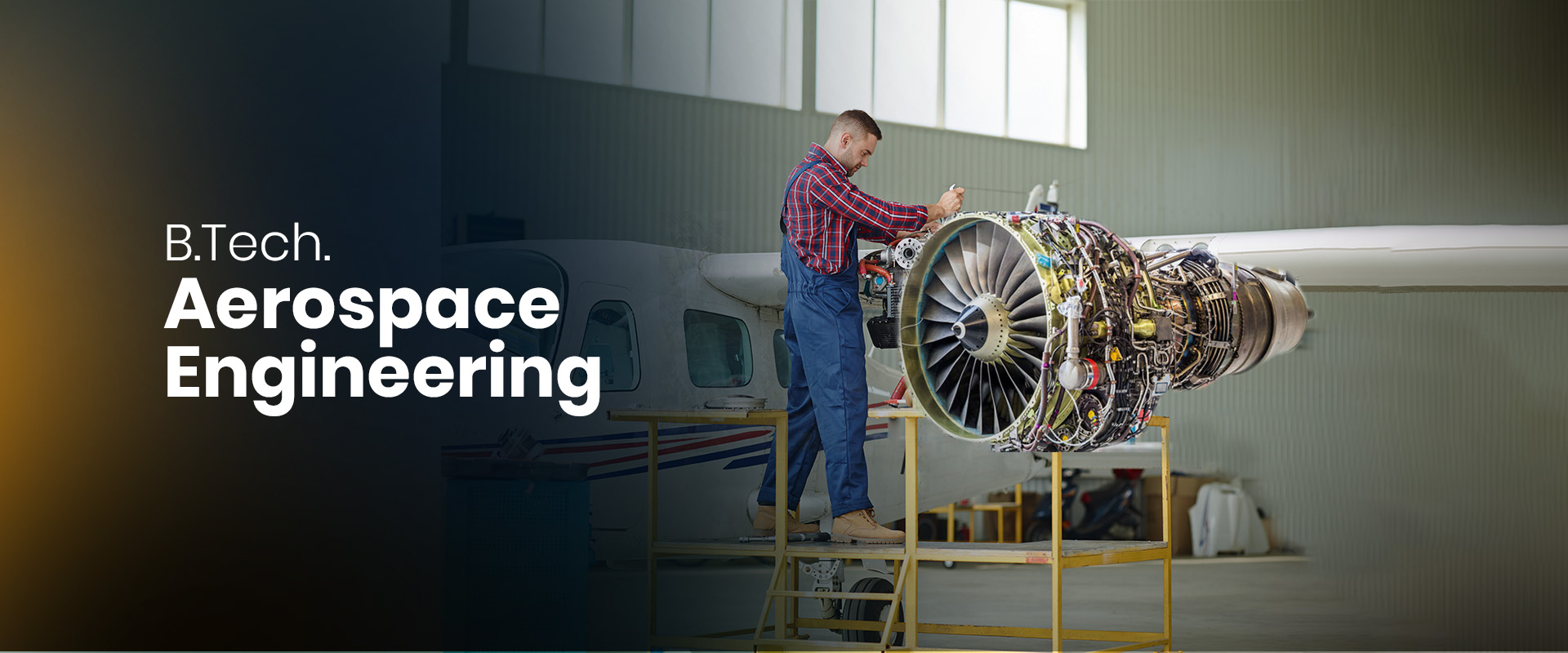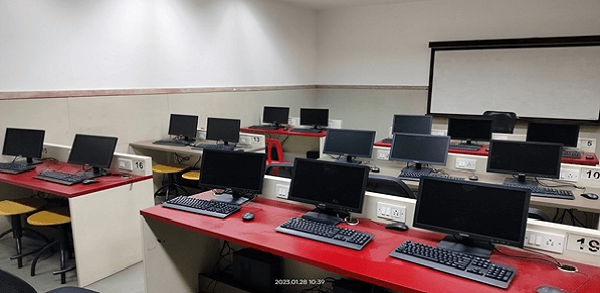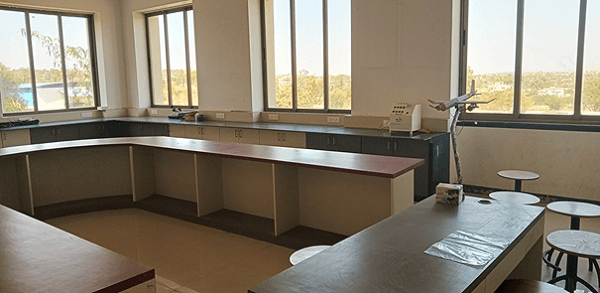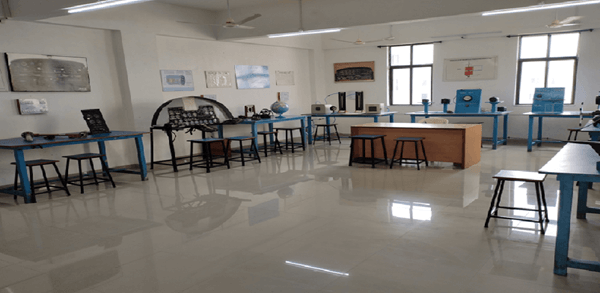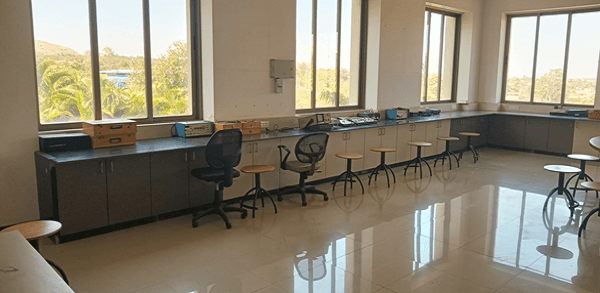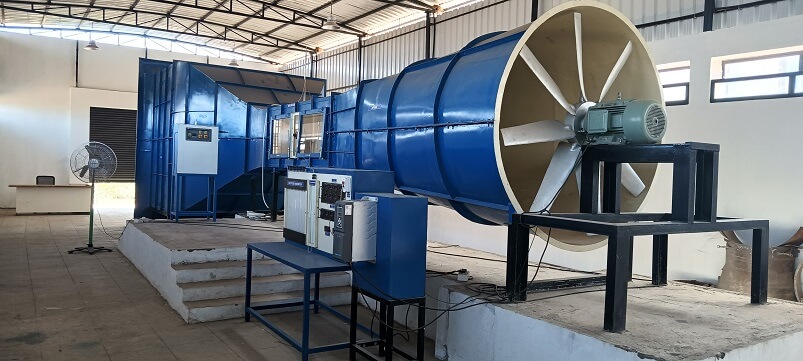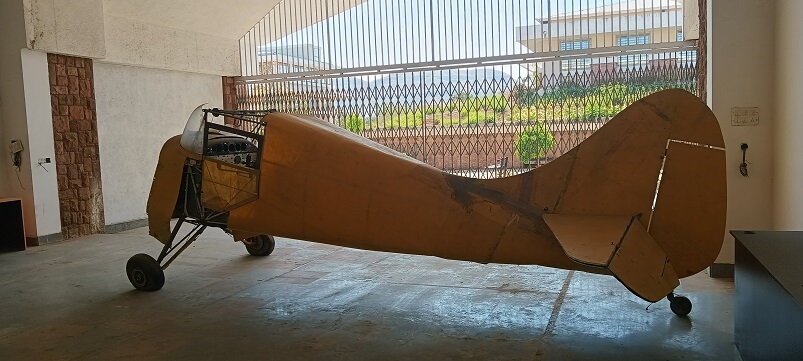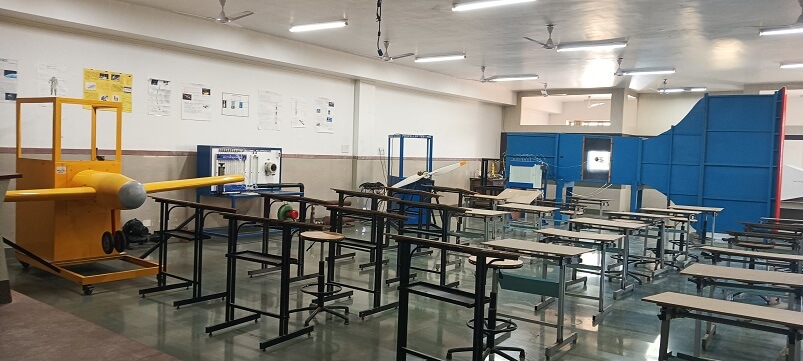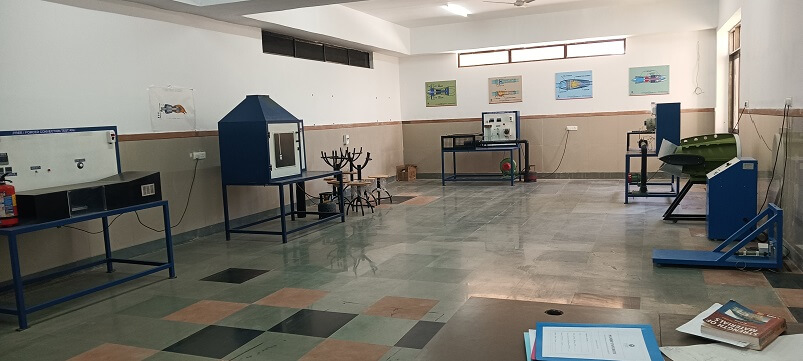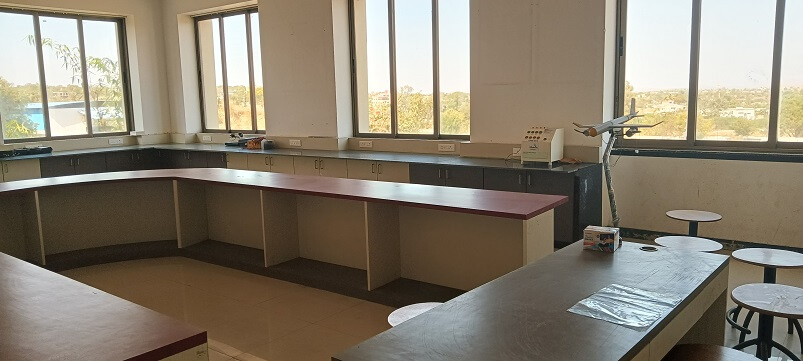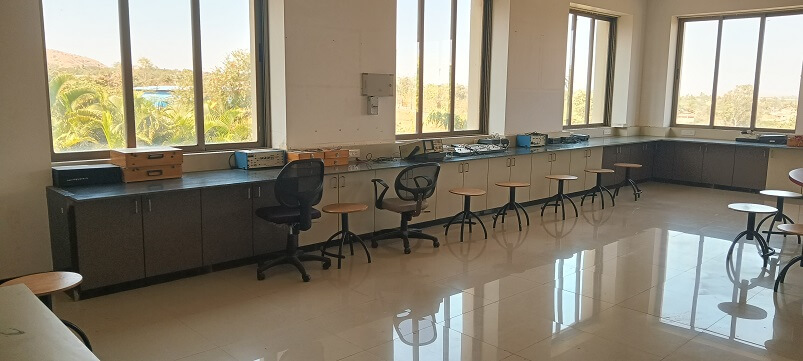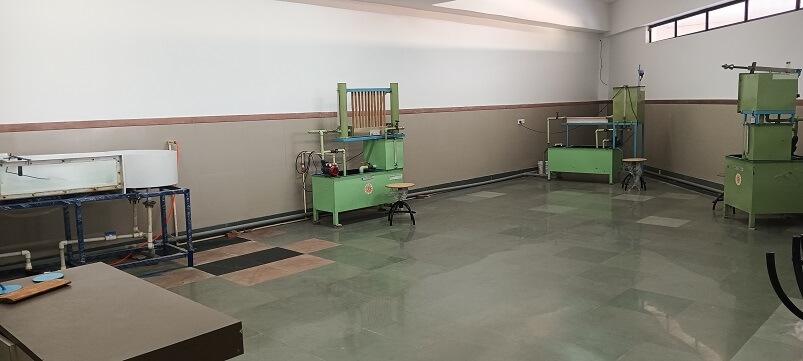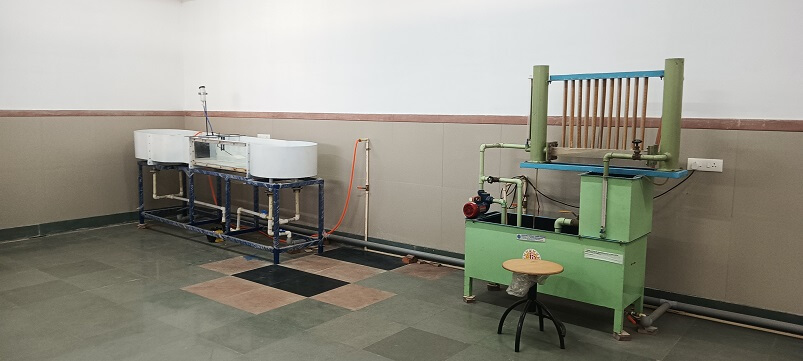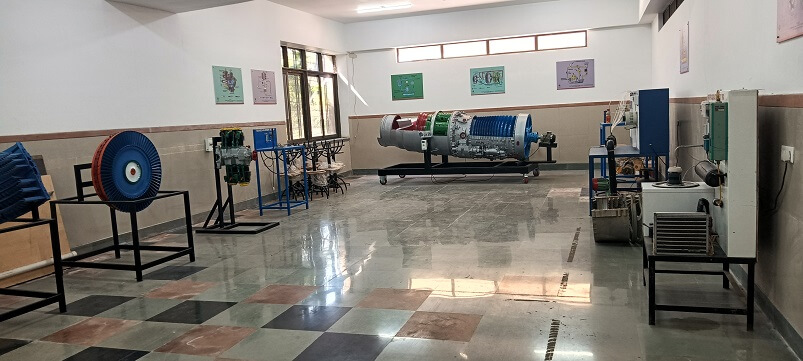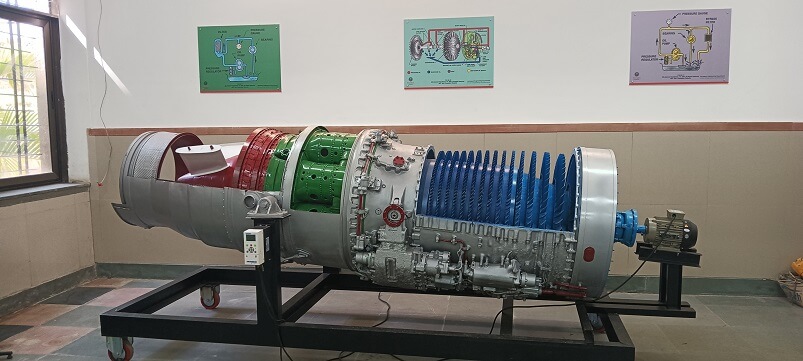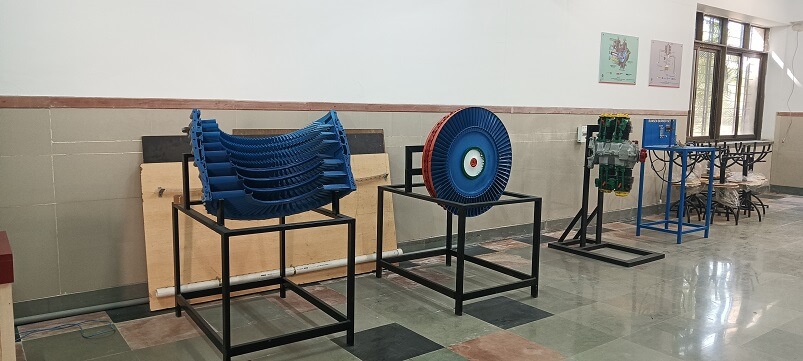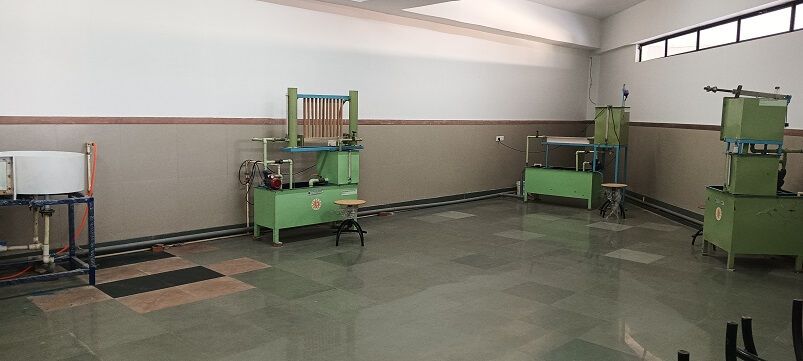Apply Now
B.Tech in Aerospace Engineering
Career Opportunities in Aerospace Engineering

Aerospace Engineer
Aerospace engineers are responsible for designing, testing, manufacturing, and maintaining components and systems used in aircrafts and spacecrafts to ensure their usability and durability.

Thermal Design Engineer
Thermal design engineers are tasked with designing, testing, analysing, and optimising thermal equipment and systems used to transfer heat, reduce loss of energy, and maintain required temperatures.

Research Engineer
Research engineers in aerospace engineering are responsible for researching newer technologies through diagnostic tests, experiment with thermal designing techniques, and develop better tech for the industry.

Aircraft Production Manager
Aircraft production managers are tasked with overseeing a manufacturing unit that produces aircrafts while also being responsible for managing employees, designing budgets, quality control etc.
Fee Structure & Eligibility
| Programme | Sem | Year | Mode | Eligibility | Academic Fees Per Year (INR) |
Special Fees (Incl. Library Fee & Examination Fees) Per Year (INR) |
Fees Per Year |
|---|---|---|---|---|---|---|---|
School of Engineering & Technology (UG) |
|||||||
| B.Tech. (Aerospace Engineering) | 8 | 4 | Sem | Passed 10+2 examination with Physics / Mathematics / Chemistry/ Computer Science/ Electronics/ Information Technology/ Biology/ Informatics Practices/ Biotechnology/ Technical Vocational subject/ Agriculture/ Engineering Graphics/ Business Studies/ Entrepreneurship as per table 8.4 Agriculture stream (for Agriculture Engineering) Obtained at least 45% marks (40% marks in case of candidates belonging to reserved category) in the above subjects taken together OR Passed min. 3 years Diploma examination with at least 45% marks (40% marks in case of candidates belonging to reserved category) subject to vacancies in the First Year, in case the vacancies at lateral entry are exhausted. (The Universities will offer suitable bridge courses such as Mathematics, Physics, Engineering drawing, etc., for the students coming from diverse backgrounds to prepare Level playing field and desired learning outcomes of the programme). |
Rs.1,30,000 /- | Rs.10,000 /- | Rs.1,40,000/- |
School of Engineering & Technology (UG-Lateral Entry) |
|||||||
| B.Tech (Aerospace Engineering) | 6 | 3 | Sem | Passed Minimum Three years/Two years (Lateral Entry) Diploma examination with at least 45% marks (40% marks in case of candidates belonging to reserved category) in Any branch of Engineering and Technology. OR Passed B.Sc Degree from recognised University as defined by UGC, with at least 45% marks (40% marks in case of candidates belonging to reserved category) and passed 10+2 examination with Mathematics as a subject. OR Passed D.Voc. Stream in the same or allied sector. (The Universities will offer suitable bridge courses such as Mathematics,Physics,Engineering drawing etc, for the students coming from diverse backgrounds to achieve desired learning outcomes of the programme) Refer table 1.10 of Appendix-1 |
Rs.1,30,000 /- | Rs.10,000 /- | Rs.1,40,000/- |
Note:
- Admission Form and Prospectus Rs. 1000/- (One Time).
- Caution Money Rs. 1000/-
- Hostel Fees Rs. 1,10,000/- per annum + 5000 (Deposit Rs 5, 000 at the time of Admission only on refundable basis) Minimum 4 Occupancy
- Transportation Fees as applicable based on Route and Pick Up Point.
- Uniform Cost Rs. 6000/-
Achievements
Faculty Achievements:
- Ravi Krishna Swami Garigipati, “A Phase change dynamics based system for additive manufacturing development of alloys”, Application Number: 202341009177 A, Indian Patent, date of filing: 12/02/2023, Date of Publication: 17/02/2023.
- Mr. Sujeet Kumar Pandey “An IOT Based Smart Drip Irrigation and Pest Control Management System”. Application Number: 202321005077. CBR Number: on 25-Jan 2023.
- Shiva Prasad U.”A System for Information Management in Computerized Injectors” Application No. 202211010459 A, Patent Filed Date: 27/02/2022, June 2022.
- Sandeep Juluru “Design of Electromagnetic Rail Gun for Aerospace Applications” Application No. 202241070716, December 2022.
- Sandeep Juluru, Awarded उत्कृष्ट शिक्षक पुरस्कार 2022, instituted by the International Institute of organised Research (I2OR) which is a registered MSME with the Ministry of Micro, Small and Medium Enterprises, Government of India.
Students Achievements :
| Sr. No. | Name of the Student | Title of the Event | Prizes Received if any | Dates |
|---|---|---|---|---|
| 1. | Yuvraj Ramdas Pagare | National level Innovation Fest organised by Government College of Engineering | 1st prize | 05/02/2023 |
| National level Project Competition and Exhibition organised by JIT College, Nashik | 1st prize | 21/02/2023 | ||
| Project Exhibition in National Level TechFest organised by SOCSE, Sandip University, Nashik | 1st prize | 14/06/2023 | ||
| State level Online Project Competition by Pimpri Chinchwad Polytechnic on project | 1st prize | 18/06/2021 | ||
| National Conference on Emerging Trends in Engineering and Technology organised by MVP RSM Polytechnic in association with Indian Society of Technical Education, ISHRAE and CSI Nashik | 2nd prize | 09/06/2021 | ||
|
Project Presentation in 10th National Level Technical & Non-Technical Events of Techxellence 2022 |
2nd prize | 15/05/2022 | ||
|
Project Competition at National Level Techfest by EESA, Sandip Foundation |
2nd prize | 15/04/2022 | ||
| 2. | Sharda More, Rushikesh Jaware | National Centre for Radio Astrophysics set up by Tata Institute of Fundamental Research conducted a two-day Science Exhibition on account of Science Day | 1st Prize | 28/02/2020 |
| 3. | Viraj Desai, Jitesh Swami, Dishant Sonawane | Poster Competition | 1st prize | 23/04/2022 |
| 4. | Kunal Thuse, Siddhesh Phalke | Aeromodelling | 1st prize | 13/05/2022 |
| 5. | Raunak Soni, Harish Pawar | Best from Waste | 1st prize | 13/05/2022 |
| 6. | Harnish Khatri, Pooja Mohanty | Technical Quiz | 1st prize | 13/05/2022 |
| 7. | Shubham Kamble, Jayesh Wagh, Bhushan Maghade, Jaidev Reddy, Jagdish Katta, Vedant Nehte | Volleyball | 1st prize | 13/05/2022 |
| 8. | Mr. Yuvraj Pagare, Mr. Jaidev Reddy,Mr. Manav Patel,Mr. Bhuwnesh Kumar Mali,Mr. Dhruv Padhi | IFERP-Student Project Competition 2023 " at SRMIST Ramapuram, Chennai | 3rd prize | 17/04/2023 |
Collaboration/MOU:
| Sr.No. | Name of Dept. | Name of Organisation | Date of MOU | Purpose |
| 1 | Department of Aero Engineering | Aelosus Aerotech Pvt Ltd | 21/07/2018 | Internship training |
| 2 | Department of Aero Engineering | Marthsakha Aerospace and Aviation Pvt Ltd | 10/08/2018 | Internship training |
| 3 | Department of Aero Engineering | PBCS Aero hub | 10/07/2017 | Internship training |
| 4 | Department of Aero Engineering | Skill Academy by Testbook | 17/09/2022 | Placement Training |
PEO,PO,PSO,CO
Program Educational Objective (PEO's)
| PEO1 | To produce graduates having a strong background of basic science, Mathematics & Engineering and ability to use these tools |
| PEO2 | To produce graduates who can demonstrate technical competence in the field of Aerospace and Aeronautical engineering and develop solutions to the complex problems |
| PEO3 | To produce graduates having professional competence through life-long learning such as advanced degrees, professional skills and other professional activities related globally to engineering & society |
| PEO4 | To produce graduates who function effectively in a multi-disciplinary environment and individually, within a societal and environmental context. |
| PEO5 | To produce graduates who would be able to take individual responsibility and work as a part of a team towards the fulfillment of both individual and organizational goals. |
Programme Outcome (PO's)
| PO1 | Engineering knowledge: Apply the knowledge of mathematics, science, engineering fundamentals, and an engineering specialization to the solution of complex engineering problems. |
| PO2 | Problem analysis: Identify, formulate, review research literature, and analyze complex engineering problems reaching substantiated conclusions using first principles of mathematics, natural sciences, and engineering sciences. |
| PO3 | Design/development of solutions: Design solutions for complex engineering problems and design system components or processes that meet the specified needs with appropriate consideration for the public health and safety, and the cultural, societal, and environmental considerations |
| PO4 | Conduct investigations of complex problems: Use research-based knowledge and research methods including design of experiments, analysis and interpretation of data, and synthesis of the information to provide valid conclusions |
| PO5 | Modern tool usage: Create, select, and apply appropriate techniques, resources, and modern engineering and IT tools including prediction and modeling to complex engineering activities with an understanding of the limitations |
| PO6 | The engineer and society: Apply reasoning informed by the contextual knowledge to assess societal, health, safety, legal and cultural issues and the consequent responsibilities relevant to the professional engineering practice. |
| PO7 | Environment and sustainability: Understand the impact of the professional engineering solutions in societal and environmental contexts, and demonstrate the knowledge of, and need for sustainable development. |
| PO8 | Ethics: Apply ethical principles and commit to professional ethics and responsibilities and norms of the engineering practice |
| PO9 | Individual and team work: Function effectively as an individual, and as a member or leader in diverse teams, and in multidisciplinary settings. |
| PO10 | Communication: Communicate effectively on complex engineering activities with the engineering community and with society at large, such as, being able to comprehend and write effective reports and design documentation, make effective presentations, and give and receive clear instructions |
| PO11 | Project management and finance: Demonstrate knowledge and understanding of the engineering and management principles and apply these to one’s own work, as a member and leader in a team, to manage projects and in multidisciplinary environments. |
| PO12 | Life-long learning: Recognize the need for, and have the preparation and ability to engage in independent and life-long learning in the broadest context of technological change. |
Programme Specific Outcome (PSO's)
| PSO1 | Should be able to understand the concepts of Aerospace and Aeronautical Engineering and their applications in the field of Propulsion technology, Aerodynamics, Aerospace system design, communication, navigation and control of airplane, space technology and other relevant areas. |
| PSO2 | Should have an ability to apply technical knowledge and usage of modern technology and advances related to Aerospace and Aeronautical engineering for solving real world Problems |
| PSO3 | Should have the capability to analyze, comprehend, design & develop Aerospace subsystems/ systems for a variety of engineering applications and thus demonstrating professional ethics & concern for societal well-being. |

